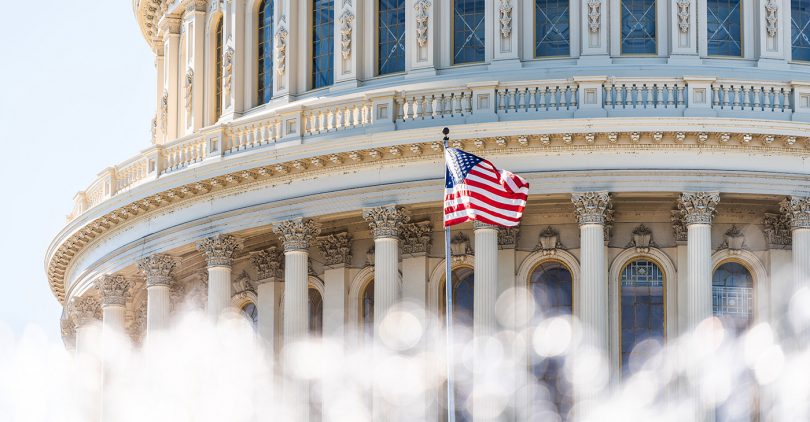By Stacy M. Brown
NNPA Senior National
Correspondent
As the curtain draws on 2023, the 118th Congress stands as a testament to political paralysis, one of the least productive in modern history. Information from Quorum, a data analytics firm, revealed a historic low tally of just 20 bills signed into law, with an additional four awaiting President Biden’s signature. The stark reality is not only a result of the familiar partisan divisions in Washington but also an outcome of internal strife within the House Republican majority, causing routine disruptions to legislative proceedings.
A particularly turbulent period during the fall encapsulated the dysfunction gripping Congress, with Republicans unable to find a replacement for ousted Speaker Kevin McCarthy (R-Calif.). The deadlock halted legislative momentum for three weeks, contributing to the abysmally low number of bills passed this year.
Comparing the productivity of the 118th Congress to historical benchmarks exposes a troubling trend. The 20 bills passed this year are far from the 70 to 73 laws enacted during the historically unproductive first years of the 104th, 112th, and 113th Congresses, when Republicans shared control with Democratic presidents Bill Clinton and Barack Obama. The current gridlock marks the nadir of a trend toward increasing legislative inertia, with five of the six most unproductive first years occurring since 2011.
An unsettling pattern emerges from a closer examination of the legislation that the 118th Congress passed. The overwhelming majority of bills were uncontroversial, sailing through either by unanimous consent or with minimal opposition. Examples include multiple measures to rename Veterans Affairs clinics and a bill commemorating the 250th anniversary of the Marine Corps. These modest accomplishments underscore the inability of Congress to address more pressing and contentious issues.

The composition of the 118th Congress did reflect a diverse range of backgrounds. The House of Representatives comprises 221 Republicans, 213 Democrats, and one vacant seat, while the Senate consists of 49 Republicans, 48 Democrats, and three Independents who caucus with the Democrats. The average age of House members at the beginning of this Congress was 57.9 years, and Senators averaged 64.0 years. An impressive 96% of Congress members boast a college education, with public service/politics, business, and law being the predominant professions.
Religious diversity is also evident, with most members identifying as Christians. Roman Catholics form the largest single religious denomination, but numerous other affiliations are represented, including Jewish, Mormon, Buddhist, Muslim, Hindu, Greek and Russian Orthodox, Pentecostal Christian, Unitarian Universalist, and Adventist. The average length of service for Representatives was 8.5 years, equivalent to 4.3 House terms; for Senators, it was 11.2 years, corresponding to 1.9 Senate terms.
The 118th Congress has seen an increase in diversity, with 155 women, 61 African Americans, 61 Hispanic or Latino members, and 21 Asian or Pacific Islander Americans serving. Additionally, five Native Americans hold seats, contributing to a total of 11.5 percent Black representation in Congress, closely mirroring the U.S. Census Bureau’s demographic data.
Critics have argued that the rise of MAGA Republicans in Congress has played a pivotal role in the legislative standstill. According to Navin Nayak, president of the Center for American Progress (CAP) Action Fund, “They will not make any attempt to actually find common ground or find common-sense solutions to problems.”
Further, the 118th Congress is projected to be in session for just 117 days this year, well below the average of 151 days per Congress from 2001 to 2022, in sharp contrast with the remarkably productive 117th Congress, during which Democrats controlled both chambers and the White House, successfully passing key legislation such as the bipartisan infrastructure law and the Inflation Reduction Act.




